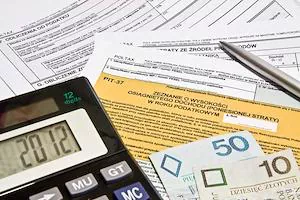Tax Reform: Federal Fuel Tax
The tax reform bill that the Argentine Government recently passed by Congress on December 27, 2017, makes a radical change on the current Fuel Tax to turn it into a true “carbon tax” targeting carbon dioxide emitters and other polluters.

The Argentine Government sent a broad tax reform bill to Congress that included a complete overhaul and a change of perspective on the federal fuel tax. Indeed, the modifications rebranded the tax regulated on Chapter III of Law No 23,966 into “Liquid Fuels and Carbon Dioxide Taxes”. This proposal was passed by Congress with some minor amendments made to the bill introduced.
The proposal originally set out its grounds on: a) the acknowledgement of the Argentine Government of human-influenced climate change; b) that those who contribute the most to this phenomenon should bear its costs and be encouraged to turn to alternative and clean energy sources; c) the international agreements about climate change and carbon dioxide emissions Argentina is a part to. The main aim was to impose a heavier tax burden on the most polluting energy sources, gradually turning this tax into an actual “environmental tax” or carbon tax.
There were major changes in the fuel taxation structure, mainly due to the fact that these have become specific taxes –annually indexed by inflation- instead of ad valorem taxes, the simplification of the taxable events and the intended pairing of the legislation wording with other excise taxes.
It should be also notably pointed out that the exemption applicable to industries that consume taxable liquid hydrocarbons and fuels in their facilities has been extended. The proportion of biofuels mixed in the taxed fuels is still excluded from taxation.
The reform also stripped the Federal Government’s power to exempt taxable fuels used for power generation, in line with the promotion policies seeking to increase the use of renewable energy sources.
The most significant change proposed in this bill is a full replacement of the current Compressed Natural Gas Tax for a new Carbon Dioxide Tax that gradually includes new hydrocarbons as taxable products, such as: fuel oil, petrol coke and mineral coal. Natural gas was excluded from this new tax in the congressional debate.
Congress also introduced special provisions related to the newly-taxed goods (fuel oil, petrol coke and mineral coal), as follows: (a) its revenue will be distributed entirely by the Federal Tax Distribution Regime; (b) these goods’ consumption will be taxed since 2019, and; (c) this tax will be levied gradually, annually increasing the applicable specific amounts by a tenth on a ten-year period.
This tax has many similarities with the Liquid Fuels Tax mentioned above, especially regarding the designated taxpayers, the ways in which the tax becomes applicable, the taxable bases and exemptions. Nevertheless, some changes were passed in in connection with the reapplication of payments of this tax as amounts to be calculated as advanced payments of other taxes for the farming and logistics industries.
Other tax laws related to hydrocarbons, specifically the Gas Oil Tax Law No 26,028 and the tax set on the Water Infrastructure Fund Act (Law No 26,181) were repealed.
Due to the fact that Law 27,430 was published in the Official Gazette on December 29, 2017, most of the taxable events will be levied starting next March 1, 2018.
The amendments to the Federal Fuel Tax regime and the new Carbon Dioxide Tax are to be further regulated.
This insight is a brief comment on legal news in Argentina; it does not purport to be an exhaustive analysis or to provide legal advice.